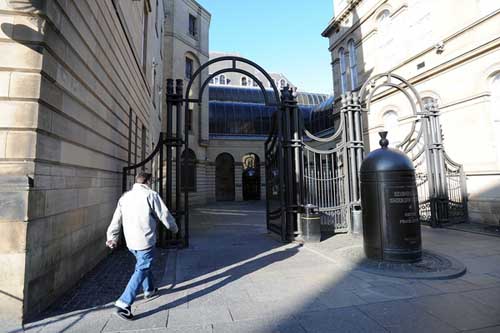SPEECH therapy could help prevent criminals reoffending, research has found.
The most comprehensive study of speech and language therapy within Scotland’s criminal justice system identified a huge un-met need, with few offenders receiving adequate help to improve their communication skills – skills which could better equip individuals to live more successfully and prevent a return to criminal activity.
It is known that around 60% of young people in contact with youth justice services have speech, language and communication needs.
Poor communication skills can have a serious and detrimental effect on people’s lives. Difficulties in expressing themselves or having problems understanding and interpreting someone else’s speech can make it impossible for individuals concerned to make best use of any rehabilitation services that might be on offer.
Therefore, poor communications skills may go some way to accounting for the high rates of reoffending which has a negative impact on the individual young person, their community and society at large.
The aim of the recent study, conducted by Queen Margaret University, Edinburgh and the Royal College of Speech and Language Therapists (RCSLT), was to support the campaign to improve speech, language and communication services within the Scottish justice system. It also helped to identify the type and scale of the current service provision within the system and where service improvements could be made.
Most of the speech and language therapists, who responded to this scoping exercise, worked in adult learning disability, children and young people and adult Speech and Language Therapy services within the criminal justice system. The survey found that speech and language therapists were working across all areas of the criminal justice service but that most provision was at the custodial sentencing stage. There was very little speech and language support for young people prior to entering prison (pre-offending stage) or after leaving prison.
Ann Clark, Senior Lecturer in Speech and Hearing Sciences at Queen Margaret University, said: “Although the value of speech and language therapy is recognised in prisons, the system is lacking assistance for young offenders still living in the community – assistance which may help prevent individuals re-offending.
“So much more could be achieved within the criminal justice service but staffing levels are just not adequate”, said Ann. Currently there is only one dedicated speech and language service in Scotland’s criminal justice service at HMYOI Polmont and HMP Cornton Vale and this service is only available for 21 hours per week.
Ann commented: ”Worryingly, although the criminal justice system is receiving many hours of work from speech and language therapists, it appeared that only two therapists had their contracted hours within the system protected.”
In HMYOI Polmont it is estimated that approximately 450 prisoners out of 760 young men are likely to have speech, language and communication needs. Although not all of these prisoners may need specialist speech and language therapy the figure suggests a substantial unmet need in Scotland’s criminal justice service.
Kim Hartley, co-author of the report and RCSLT Scotland Officer, concluded: “Although the study shows a growing demand for speech and language therapists in the criminal justice system there are virtually no Speech and Language Therapy services with staff or resources to meet the demand – in today’s financial climate the situation is set to get even worse.”


